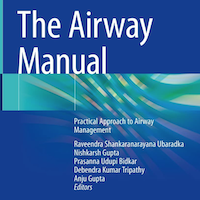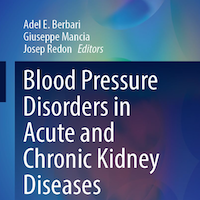Tag: resuscitation
Burn Resuscitation: The Shift to Precision
Paradigm Shift: The focus is moving away from rigid formulas toward individualized, goal-directed strategies to manage severe burn injury. The Goldilocks Problem: There is increasing emphasis on avoiding both under-resuscitation... read more
Critical Care Pearls: ICU Q&A Handbook for Critical Care Medicine: A Board Review and Daily Clinical Practice. Rapid Reference for Physicians, Fellows & Nurses
In the fast-paced world of intensive care medicine, every second counts and every question matters. Critical Care Pearls – Third Edition delivers over a thousand carefully curated ICU questions and evidence-based answers... read more

The Sepsis Chain of Survival: Breaking the Cycle
This framework offers a systematic and adaptable approach to improving outcomes for patients with suspected sepsis. Borrowing from the successful Cardiac Arrest Chain of Survival, the Sepsis Chain emphasizes a seamless series... read more
Sepsis, Hemoglobin, and Harm: Transfusions Hurt When Hemoglobin Hits 10g/dL
Red Blood Cell (RBC) transfusions are common in septic patients, but this study highlights the potential for harm at higher hemoglobin (Hgb) levels. Although they may be physiologically guided up to an Hgb of 9-10g/dL, the... read more
Epinephrine or Norepinephrine? The Vasoactive Face-Off in Pediatric Septic Shock
This prospective observational study compared the clinical outcomes of epinephrine (adrenaline) versus norepinephrine (noradrenaline) as the initial vasoactive agent in pediatric septic shock. Study Population: 68 children... read more
Handbook of Intravenous Fluids
This easy to use pocket book covers all aspects of intravenous fluid therapy in critically ill patients from applied physiology to bedside clinical management succinctly. It includes updated and evidence-based content on... read more

Peripheral Perfusion-Targeted Resuscitation Improves Outcomes in Septic Shock
This study, which included 200 sepsis and septic shock patients in the emergency department, compared the effectiveness of management guided by peripheral perfusion measurements against standard care protocols. The study... read more
Norepinephrine Dosing: A Historical Look at Reporting and Salt Formulations
Reporting on norepinephrine dosage has been inconsistent due to variations in how drug labels account for different salt formulations. This inconsistency creates problems in clinical practice and research by making it difficult... read more
oXiris Treatment Efficacy To Reduce Endotoxin Levels
In this pilot study of patients with CS requiring VA-ECMO, the application of an oXiris did not demonstrate a significant reduction in endotoxin levels at 48 h compared with standard care. While we observed temporal decreases... read more
Airway Management Success in Out-of-hospital Cardiac Arrest Using Different Devices
Although this study found no significant difference in the FPS rates between direct laryngoscopy and video laryngoscopy, the more frequent use of conventional laryngoscopy was associated with a lower FPS rate among anesthetists.... read more
Causes of Death in Patients Undergoing ECPR
Refractory shock was the leading cause of death among our cohort of extracorporeal cardiopulmonary resuscitation (ECPR) patients, followed closely by neurological complications, while other causes are rare. In this post-hoc... read more
Management of Chest Trauma: A Practical Guide
75% of patients who die from trauma have injuries to the chest. The care of the chest trauma patient can be incredibly complex, require multiple specialty and sub-specialty services, and may require interventions available... read more

Levosimendan Role in ECMO for Refractory Cardiac Arrest
Levosimendan use in extracorporeal cardiopulmonary resuscitation (ECPR) did not improve survival. Neurological outcome could be representative of the short- and long-term outcomes. Future well-designed randomized trials... read more
Fever Management with or without a Temperature Control Device After OHCA and Resuscitation
the TEMP‐CARE trial will advance our understanding of post‐cardiac arrest care fever management strategies. With a large sample size and a broad patient population, the results of this trial will inform clinical practice... read more
Cardiac Intensive Care
Using a multidisciplinary, team-oriented approach, this unique title expertly covers all the latest approaches to the assessment, diagnosis, and treatment of patients with critical cardiac illness. Led by Dr David L. Brown,... read more

Wireless Wearable Doppler Ultrasound: Monitoring Trauma Patients
This study demonstrated the feasibility of placing the wireless, wearable Doppler ultrasound on severely injured trauma patients admitted to the trauma bay of a busy level 1 trauma center. The device reliably captured... read more
Mortality in Patients with SA-AKI Using the MIMIC-III Database
In this study, we identified critical factors influencing mortality in patients with Sepsis-Induced Acute Kidney Injury (SA-AKI) using the MIMIC-III database. The primary findings of our research, including advanced age,... read more
Endovascular Resuscitation and Trauma Management
This book focuses on endovascular methods for resuscitation and trauma management. Written by highly qualified and clinically active physicians from around the world, it shares information gathered over the past decade,... read more

Management of Pediatric Septic Shock with Electrocardiometry
Advanced hemodynamic monitoring with EC, in conjunction with clinical assessment, facilitated a restrictive fluid strategy and reduced the incidence of FO. By closely monitoring hemodynamic parameters and tailoring therapy... read more
Septic Distributive Shock: Resuscitative Endovascular Balloon Occlusion of the Aorta
Massive distributive shock can lead to total collapse of the cardiopulmonary system with a subsequent need for CPR. Partial REBOA may be a viable resuscitation adjunct in such cases to restore hemodynamics and increase coronary... read more
Trauma Team Dynamics: A Trauma Crisis Resource Management Manual
This is the first book exploring the unique dynamics created by a multidisciplinary trauma team and how crisis management strategies can improve teamwork and communication and, potentially, improve patient resuscitation... read more

Prognostic Accuracy of POCUS in Patients with Pulseless Electrical Activity
This systematic review and meta-analysis shows that among 1,202 patients across 18 studies, point-of-care ultrasound (POCUS) exhibits high prognostic accuracy for survival to admission (SHA) and moderate accuracy for ROSC... read more








